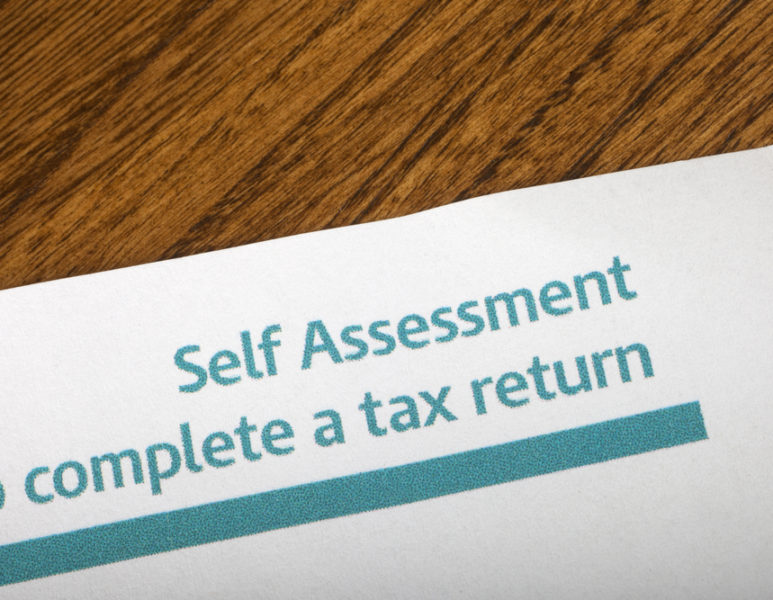Construction Industry Scheme (CIS) Accountants
At BNA Consulting, we have years of experience and comprehensive knowledge of the Construction Industry Scheme (CIS). We offer CIS clients a full, efficient, and prompt accountancy service at very reasonable fees, supported by both English and Russian-speaking accountants in London.
Our CIS-Related Services Include:
- Online verification of subcontractors
- Electronic filing of contractor’s monthly returns
- Submission of annual returns
Under the Construction Industry Scheme (CIS), contractors deduct money from a subcontractor’s payments and pass it to HM Revenue and Customs (HMRC). This is where BNA Consulting steps in to provide you with support, as these deductions count as advance payments towards the subcontractor’s tax and National Insurance. BNA Consulting can provide you with advice on how to register for the scheme. Whether you are a contractor who must register or a subcontractor who doesn’t have to but faces higher deductions if not registered, BNA Consulting offers the right service to prevent any possible mishaps with support from our experienced CIS accountants.
Guidance on CIS Registration
BNA Consulting has dealt with many cases related to CIS and always aims to inform its clients on who counts as a contractor or subcontractor.
Register as a Contractor: You should register as a contractor if you either pay subcontractors for construction work or your business doesn’t operate in a construction environment but spends an average of more than £1 million a year on construction over any 3-year period.
Register as a Subcontractor: You should register as a subcontractor if you perform construction work for a contractor. At BNA Consulting, we recommend that you register as both if you fall under both categories.
Work Covered by CIS
The Construction Industry Scheme (CIS) covers most construction work to permanent or temporary buildings or structures, as well as civil engineering work like roads and bridges. For the purposes of CIS, construction work includes:
- Preparing the site, such as laying foundations and providing access works
- Demolition and dismantling
- Installing systems for heating, lighting, power, water, and ventilation
- Cleaning the inside of buildings after construction work
- Building work
- Alterations, repairs, and decorating
Exemptions from CIS Registration
In addition to our extensive experience, we at BNA Consulting can inform you that you don’t have to register if you perform the following jobs:
- Scaffolding hire (with no labour)
- Architecture and surveying
- Making materials used in construction, including plant and machinery
- Delivering materials
- Carpet fitting
CIS Tax Return Calculator
To assist with your CIS needs, BNA Consulting provides a CIS tax return calculator to help you understand your tax obligations better. Our tools and expertise ensure you stay compliant and efficient in managing your CIS responsibilities.
Contact Us Today
Choose BNA Consulting, a leading Construction Industry Scheme (CIS) accountant, for reliable and professional accounting services. Visit our CIS Services page to learn more about how we can support your business.
Construction Industry Scheme (CIS) covers most construction work to a permanent or temporary building or structure civil engineering work like roads and bridges. One must be informed and know that for the purpose of CIS, construction work includes:
- preparing the site, such as laying foundations and providing access works
- demolition and dismantling
- installing systems for heating, lighting, power, water and ventilation
- cleaning the inside of buildings after construction work
- building work
- alterations, repairs and decorating
In addition to our experience, we at BNA Consulting know that you don’t have to register if you do one of the following jobs:
- scaffolding hire (with no labour)
- architecture and surveying
- making materials used in construction including plant and machinery
- delivering materials
- carpet fitting
f you’re in the construction business, subcontracting to other suppliers can make your business model (and accounting) a tad more complex.
What is the Construction Industry Scheme (CIS)?
The Construction Industry Scheme has been set up by HMRC to ensure subcontractors cannot evade tax within the UK construction industry and to protect them from false employment. Under the scheme, registered contractors deduct money from the subcontractor’s payments. This then goes directly to HMRC as advance payment towards the subcontractor’s National Insurance and tax.
So, who has to register? HMRC states you must register as a contractor with the CIS if:
- You pay subcontractors to carry out construction work for you
- You have spent more than £3 million on construction work in 12 months since you made your first payment (even if your business is not construction based)
Your company status doesn’t matter – you might be a sole trader, in a partnership, or have a limited company. And time is of the essence; you must register for CIS before you employ your first subcontractor, not after.
Of course, depending on the nature of your business, you may subcontract your services as well as employ the services of others. If that’s the case, you should register as both a contractor and subcontractor and follow the relevant rules and processes when each scenario arises.
This is why so many firms turn to an accountant and CIS accounting software to make fast work of CIS invoices and deduction statements.
What does CIS cover?
HMRC defines construction work as:
- A permanent or temporary building or structure
- Civil engineering work like roads and bridges
For the purposes of the CIS scheme, HMRC states this includes:
- Preparing the site – for example, laying foundations and providing access works
- Demolition and dismantling
- Building work
- Alterations, repairs, and decorating
- Installing systems for heating, lighting, power, water, and ventilation
- Cleaning the inside of buildings after construction work
So, if construction is the business you’re planning to go into, it will likely affect you. There are some exceptions though, so be sure to seek advice or check out the full criteria on the HMRC website before registering.
The Construction Industry Scheme (CIS) Deduction Rates
When it comes to how much tax is to be deducted, there are three eventualities though 20% is standard.
The CIS deduction rates are:
- 20% for registered subcontractors
- 30% for unregistered subcontractors, providing a big incentive for new subcontractors to register
- 0% when the subcontractor has ‘gross payment’ status – this means the contractor pays them in full and the subcontractor is responsible for paying all applicable tax and National Insurance on their income at the end of the year via their Self Assessment tax return.
Gross Payment Status
Unsurprisingly, CIS deductions are tightly controlled, and HMRC may fine anyone providing false information. HMRC will check you pass three tests to qualify for gross payment status.
You’ll need to be able to demonstrate that:
- You’re tax compliant – i.e: you’ve paid your tax and National Insurance on time to date
- Your business is in construction (work or providing employees for labour) and based in the UK
- Your business is tied to a bank account
Additionally, there’s a turnover test. HMRC will inspect your turnover for the last 12 months.
Your turnover (ignoring the cost of raw materials and VAT) must be:
- £30,000 or more for sole traders
- £30,000 for each partner in a partnership or a minimum of £100,000 for the whole partnership
- £30,000 for each individual director of the company, or a minimum of £100,000 for the entire company
Additionally, if your company is ‘controlled by 5 people or fewer’, your company must have an annual turnover of at least £30,000 for each of them.
FAQs
Like all things tax-related, it’s important to grasp the finer detail. Let’s take a closer look at how to verify subcontractors, submit deduction statements, and what records are essential to keep.
Here are some questions and answers that get to the heart of the matter and that we at BNA Consulting get asked all the time:
Who counts as a contractor or subcontractor?
This really comes down to who employs who to deliver a service or product. The contractor will be responsible for paying the subcontractor. A company can act as a contractor in some cases and as a subcontractor in others. In this situation, the same company would need to register as both with HMRC, so their business dealings are fully transparent.
What are contractors’ responsibilities?
As a registered contractor you must verify the subcontractor is registered via HMRC – this will then enable HMRC to confirm the rate of deduction. This step need not be taken if you have included the subcontractor on any CIS returns completed in the current tax year or the previous two tax years. If a deduction is applicable (i.e: the subcontractor does not have gross payment status), the contractor will need to calculate the amount to be deducted, make the net payment to the subcontractor, record full details, and provide a deduction statement to the subcontractor. Each month, contractors are also responsible for sending HMRC CIS returns. These monthly returns detail the subcontractors they’ve worked with, outline the payments made, and disclose any and all deductions. This statement must also confirm that the employment status of the subcontractors has been considered and that all subcontractors have been properly verified. Last but not least, each month, contractors have to send on their CIS payments for the deductions they have made. Many set up a holding account via their accounting system to keep the money separate from their central funds for obvious reasons: it’s not for spending!
What is the difference between PAYE and CIS?
CIS is something of a broad brush approach, with contractors usually paying a fixed 20%. As a PAYE, you’d have a tax code and the tax payable could vary depending on the level of your income.
Are CIS tax rates the same as self-employed?
You should only pay tax under CIS if you are self-employed. If you’re an employee, receiving work consistently from the same contractor, you should have PAYE status (and employment rights such as sick leave) which means tax and National Insurance will be deducted from your pay at source before you receive it.
One of the advantages of being an employee is you don’t need to file a tax return. The self-employed need to register with CIS and as self-employed with HMRC and fill in a Self -Assessment.
Does CIS apply to sole traders?
Yes, CIS applies to all business types including sole traders.
Can you claim CIS back?
You may be able to claim a refund if you have bought materials or incurred expenses for the job (such as tool hire) and therefore overpaid your tax.
CIS does not take into account your Personal Allowance either – that’s the amount of earnings UK taxpayers are eligible to receive tax-free. In 2022, this amount stands at £12,570. It is therefore quite common for self-employed sole traders without gross payment status to overpay tax and receive a rebate, though it’s worth remembering National Insurance also comes into play and will reduce the refund amount somewhat.




